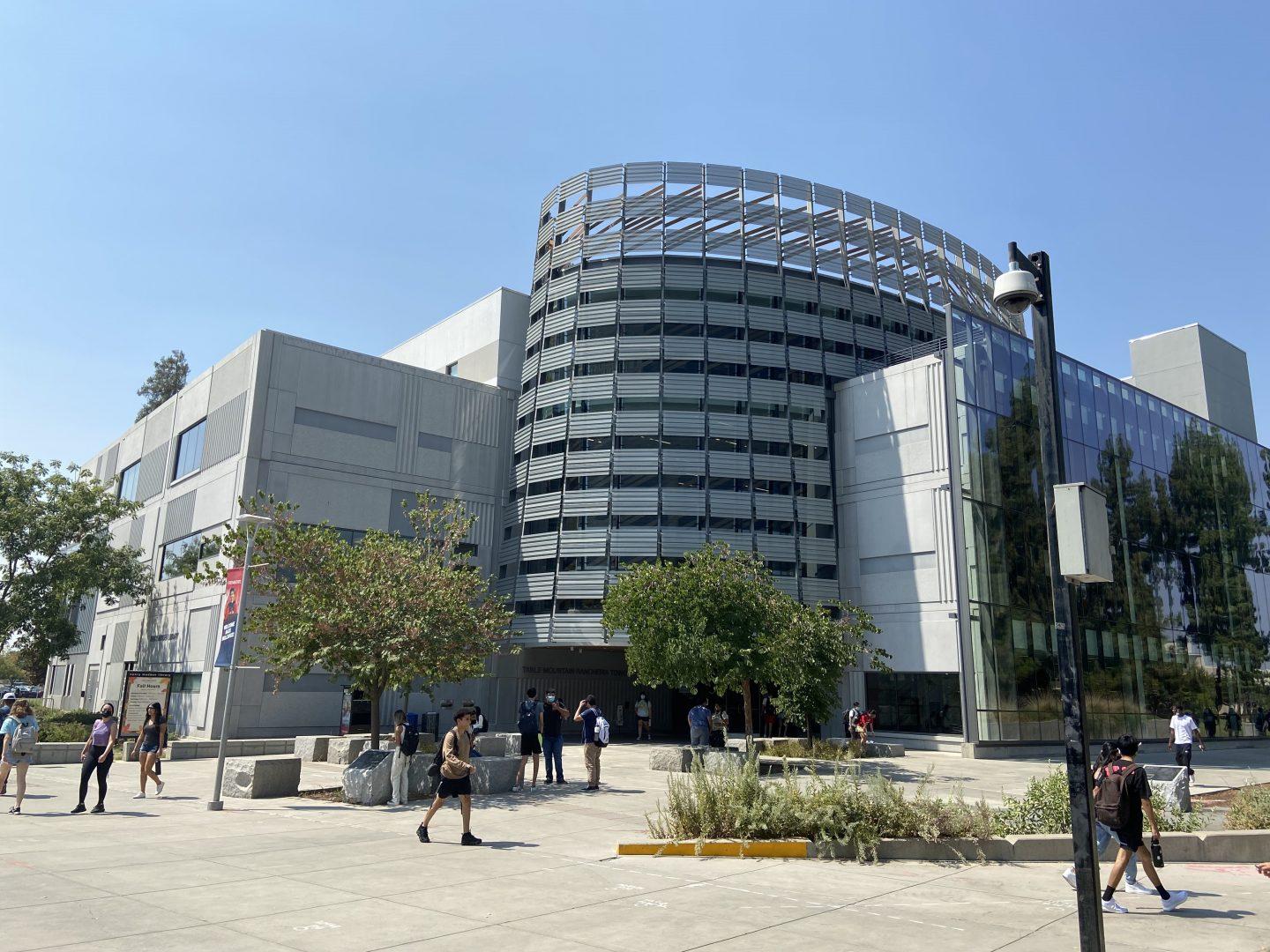ASI senator says more menstrual products needed on campus
The university library is one of the listed locations that provides free menstrual products in Rooms 1108, 1113; 2106, 2111 and 3110. (Edward Lopez/The Collegian)
Mar 15, 2022
Fresno State responded to the lack of free menstrual products provided on campus and announced locations in the university library and Student Health and Counseling Center (SHCC) where they are now.
However, Megan Torres, Associated Students Inc. (ASI) senator of operations and resident affairs, said that many of the free menstrual products in the library are still products she has provided herself and not from the university.
“I went into some of those bathrooms that could have possibly been those rooms and they didn’t have any products that were there besides the products that ASI bought and I was able to put there,” Torres said.
With the passage of California Assembly Bill 367 (AB367) in October 2021, California State Universities are required to stock “an adequate supply of menstrual products, available and accessible, free of cost, at no fewer than one designated and accessible central location on each campus.”
Torres has been in discussion with administration regarding this bill, and she said that the rules set by AB367 do not provide enough guidance for the university. She has since spearheaded a menstrual product initiative within ASI to improve its availability throughout campus since fall of 2021.
According to Fresno State public information officer Lisa Boyles Bell students can find free menstrual products at the library first floor in Rooms 1108 and 1113; second floor Rooms 2106 and 2111; and third floor Room 3110.
She also said products are available at the Student Health and Counseling Center (SHCC) in Rooms 147 and 148.
Upon investigation, The Collegian found that several of the restrooms listed by the university had menstrual products.
Additionally, the SHCC does carry menstrual products, but they are not free of charge.
Bell also said that the university has posted QR code stickers outlining the locations of gender-neutral bathrooms alongside the four locations that the university says it stocked with free menstrual products.
“We are grateful to ASI [Associated Students Inc.] and to senator [Megan] Torres for their partnership to ensure that Fresno State continues to prioritize the needs of our students. In addition to start-up funding from ASI, annual funding to sustain this effort will be provided by the Student Health and Counseling Center,” Bell said.
According to Bell, the university looks forward to supporting the menstrual product initiative led by Torres.
“As we work to further support this initiative, we will continue working with ASI, and other stakeholder groups to ensure all students have access to quality and equitable menstrual products throughout campus,” said Bell.
Torres said that she is disappointed with the lack of communication by the administration.
“I talked to different administrators like the director Michael Lukens and [President Saúl Jiménez-Sandoval] about setting up meetings. They were able to get back to me ”” both of them ”” about that, but I was only able to schedule a meeting towards the end of April. With that, that was the invite they sent but they haven’t updated me on any new findings,” Torres said. “I’m confused about the startup funding because we haven’t talked about donation of ASI products to them.”
None of the rooms listed in the QR code’s Google Doc were clearly identified in the library. Room 2106 did not have the QR code sticker denoting it as a location for students to pick up menstrual products.
Torres said she had difficulties finding the locations noted on the Google Doc as they were not clearly marked on the wall.
“I don’t know why they would put decals up if they weren’t stocking those restrooms. So you know, even if they did, it’s clearly not accessible to all students because it seemed to be a bit confusing,” said Torres
Torres said she remains committed to addressing menstrual product inequality at the university and plans to continue providing free daily menstrual products to students in need across the university.
“I understand this is not, you know, the only issue, but it’s an issue that matters and it’s been put on the backburner for so long, like this is 2022, and we still don’t have basic necessities provided for us,” Torres said.
“I would just like people to be more aware of the situation just because it’s not a topic that’s normalized. It’s not a topic that’s talked about. Often a lot of these issues that predominantly hurt women are stigmatized and avoided,” she said.







